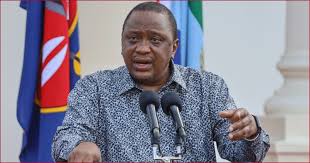Former President Uhuru Kenyatta has recently addressed concerns regarding the perceived sidelining of the Nairobi Peace Process, which he has been facilitating to resolve the conflict in the eastern Democratic Republic of Congo (DRC).
He attributed the slowdown in the peace process to a lack of political momentum, especially following the December 2023 elections, which shifted attention away from the ongoing negotiations.
Kenyatta emphasized that despite extensive diplomatic engagements with various stakeholders, including the M23 rebel group, the suspension of the East African Community Regional Force (EACRF) further hampered progress, leading to a resurgence of fighting in the region.
In a recent joint summit held in Dar es Salaam, Tanzania, leaders from the Southern African Development Community (SADC) and the East African Community (EAC) agreed to merge the Nairobi and Luanda peace processes into a unified framework.
This decision aims to enhance complementarity and strengthen efforts to resolve the conflict in the eastern DRC.
The summit mandated the co-chairs, in consultation with the African Union (AU), to consider appointing additional facilitators to support the merged process.
Kenyatta reaffirmed his commitment to the Nairobi Peace Process, highlighting its critical role in facilitating dialogue and conflict resolution in the eastern DRC.
He expressed his dedication to collaborating with the DRC government, regional partners, and international stakeholders to find pathways to peace.
He stated, “The Facilitator strongly believes that the Luanda and Nairobi processes hold the greatest promise for resolving and ultimately ending the crisis in eastern DRC.”
The former president’s remarks come amid discussions about leadership roles within the African Union. Notably, Kenya’s ruling party, the United Democratic Alliance (UDA), has expressed support for opposition leader Raila Odinga’s bid for the African Union Commission Chairperson position.
UDA Secretary General Cleophas Malala praised Odinga as a “true Pan-Africanist” and emphasized that the decision to back his candidature was patriotic, aiming to elevate Kenya’s profile on the continental stage.
This development has sparked debates within Kenyan political circles. Kiambu Senator Karungo wa Thang’wa questioned the decision to support Odinga, suggesting that former President Kenyatta would be a more suitable candidate for the AU position.
He remarked, “I have heard that the country is supporting Raila Odinga and then I asked myself, you want us to choose this person (Raila) when our Uhuru is here?”
In response to these discussions, Odinga has addressed claims of being manipulated to support the current administration in exchange for backing his AU bid.
He clarified that he is willing to forgo his ambitions for the AUC Chairmanship if it is being used to manipulate him at the expense of Kenya’s stability.
Odinga emphasized that his primary concern is the well-being of the country and that any decision regarding his candidature would be made in that context.
As the situation evolves, both Kenyatta and Odinga continue to play significant roles in regional diplomacy and national politics.
Their actions and decisions will undoubtedly influence Kenya’s position within the African Union and its efforts to promote peace and stability in the region.


